People of any age can turn to self-injury, it isn’t a ‘teen thing’.
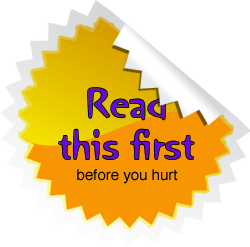 Before discussing adult self-injury, we should first clarify what the word ‘adult’ might mean. Generally it might refer to age, and for the most part this article is aimed towards people who are older in years. But ‘adult’ can also relate to responsibility, and at LifeSIGNS we are only too aware that there are many younger people who live very adult lives, and who face responsibilities and challenges far beyond their years. So whatever your age, if you consider yourself to be living an adult life, then these words are for you.
Before discussing adult self-injury, we should first clarify what the word ‘adult’ might mean. Generally it might refer to age, and for the most part this article is aimed towards people who are older in years. But ‘adult’ can also relate to responsibility, and at LifeSIGNS we are only too aware that there are many younger people who live very adult lives, and who face responsibilities and challenges far beyond their years. So whatever your age, if you consider yourself to be living an adult life, then these words are for you.
We hope by now we’ve managed to get the message across that self-injury isn’t a ‘teen thing’, and that people of all ages might rely on self-injury in order to cope. While younger and older people share many of the same challenges in life and with their self-injury, there are also different difficulties to face by people at different stages in their life.
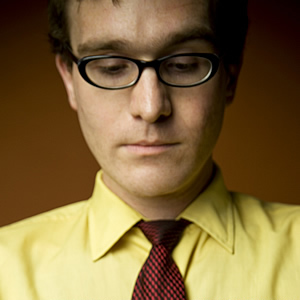 Perceptions
Perceptions
Because self-injury is often perceived as something ‘young people’ do, older adults can feel that it is something they should have ‘grown out’ of. These feelings can be even more difficult when an older person has turned to self-injury for the first time, rathe than discovering self-injury in their youth.
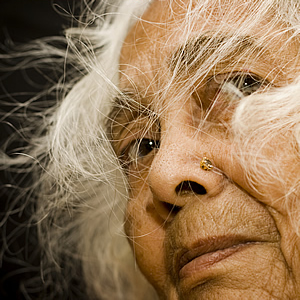 The media
The media
Although increasingly willing to raise awareness about self-injury, the media still focus on young people far too much. Even television programmes that include a self-injury storyline either tend to be programmes aimed at young people, or focus on a young person self-injuring. This sends out an inaccurate message, and increases feelings of isolation in older people who self-injure.
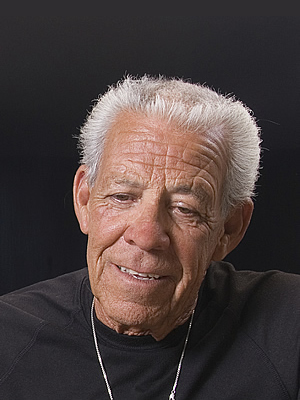 Less help
Less help
If you are older, it might feel that there are fewer organisations out there that can help you. There seems to be a lot of mental health and support related organisations that cater to people under 25; but if you’re over 25 it can be more difficult to find somewhere that you feel you ‘belong’. Often, funding for projects and support services is literally ring-fenced for the government’s or sector’s definition of ‘young people’, meaning that organisations are more likely to get funding / budgets if they develop services for young people.
Resources, funding, and the attitudes of some healthcare professionals, may make it more difficult for older people to obtain the professional help they need.
Young adults, once they hit a certain age, may find they lose vital support and resources that they had been relying on.
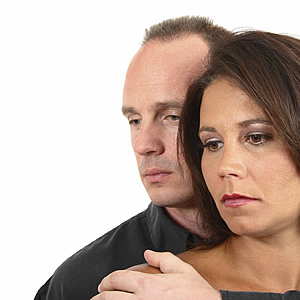 Friends and loved ones
Friends and loved ones
Friends / loved ones of adults may be less likely to be educated surrounding the subject of self-injury, making it more difficult for an adult to bring up the subject with loved ones.
Also, whereas young people are encouraged to talk about their self-injury with parents and loved ones, adults have to consider just who they can turn to.
 Responsibilities
Responsibilities
Adults, in general, have more responsibilities than young people. Whereas young people are usually the ones who are cared for, quite often adults find that they are only ‘carers’ and are not ‘cared for’ themselves. This not only means that they may receive less support, but it also means they have a responsibility to maintain their caring roles, while attempting to also care for themselves.
When a young person finds themselves in a caring role, the burden can be even greater. They are at a time of their lives when they are supposed to be the one being cared for, and yet while their friends might be living the ‘normal’ life that young people need, they find they are forced to take on adult responsibilities. This is damaging not only because they tend to miss out on the ‘fun’ side of youth necessary for emotional balance and wellbeing, but also because they don’t yet have the life experience needed to cope with such responsibilities.
This is also true for young people who although may not have to care for others, neither are they cared for themselves. Some young people are left to fend for themselves, without the support, nurturing and guidance necessary for emotional balance, growth and wellbeing. It’s not surprising that life can feel overwhelming.
Shame and secrecy
Considering all these matters, shame and secrecy, while common in anyone who self-injures, may be even more burdensome for older people.
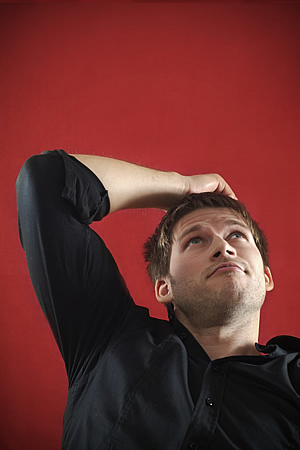 Time
Time
Adults who are juggling careers / families / finances may have less time for themselves than some younger people, making it more difficult for them to engage in hobbies and activities that can enhance health and happiness and provide much needed distraction.
Similarly, young people forced to cope with adult responsibilities will not have the time they need for themselves. They may have to care for others, or they may have to juggle school with a job and household responsibilities. We don’t mean the usual responsibilities that a young person might expect, such as household chores, helping care for younger sibblings occasionally, or working to earn money for themselves. We’re talking about people who run their households, or are the sole carer for another person, or who are forced to work in order to financially support others. These people are far less likely to have the time they need to care for themselves.
The feelings of loneliness, isolation and lack of time can be even more enhanced for young people in these situations, because they are only too aware that their lives are not the norm, and that their peers are leading a far more care-free life.
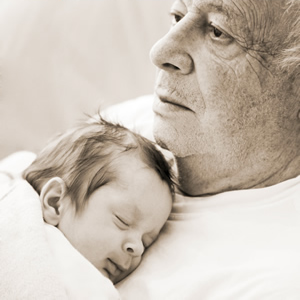 Drivers
Drivers
Because of their increased life experience and more complex daily lives, adults (or young people living with adult responsibilities) may have a wider range of ‘drivers’ that could lead to self-injury.
How we can help
Whatever your age or responsibilities, you are not alone. People of all ages and in all kinds of circumstances turn to self-injury in order to cope. And everyone deserves help and support.
LifeSIGNS is a fully inclusive organisation and our members range from young teenagers to older people who have retired. Our resources are written for ‘people’ who are affected by self-injury, and we offer guidance and support for everyone.
Whether you need advice for moving away from self-injury, distraction techniques, hiding scars, obtaining professional help, talking to loved ones, getting through the urge to self-injure, or just somewhere to talk about the things that are going on your life, we are here for you.
We are constantly looking to improve and increase the resources we offer to people who self-injure. So whether you’re an adult in years, or a young person living an adult life, we’d appreciate hearing from you. If you’d like to share your own personal story with our members, or if you have suggestions for ways in which we could improve our resources to help more people like you, or if you’d like to challenge or discuss any of the points raised in this article, then please do contact us.

166 Comments
Kir
April 1, 2021I have cut as an adult. I’ve had friends and family tell me they would be there for me and all they did was question why I do it, when in truth I still don’t know why. I have days when my depression kicks in hard and all I think about is how I can fix the pain. I always come back to the thing that helped me as a teen. It was my ‘best friend’ at the time. Now I have to learn how it is to be without my ‘best friend’. I have a loving family. But most of the time I’m alone with my thoughts. Sometimes I don’t know what I should do anymore. I feel lost and I’m tired of trying to be happy with a facade everyday. I just wish I could talk to someone who understands how I feel. But since I’m an adult it’s hard for people to understand. Also I can’t afford a psychologist to talk to.
Mindy
January 6, 2021Hi. I’m Mindy, in 50s and I cut. I just started this past year. The pressure of everything and the depression just got to be too much. Funny thing is- a few years a go I never even heard of it and when I did couldn’t understand why people did it and now- here I. What am I supposed to do now ?
Glenn
December 22, 2020I have self harmed recently and think i will do it more. I am in my 50s.
Hol
October 26, 2020i dont know why i harm myself. I’m an adult. have i achieved or am i in a place where i expected to be at my age, no, (but who is at my age) however im not unhappy, i have good friends, a committed and loving partner but sometimes i just want to hurt myself and i dont know why. i dont have to be sad, even though that was how it started when i was a teenager, but sometimes i cant help myself and just do it. which makes me feel like a weirdo, i think if i find someone to speak to who understands i wouldnt feel like a nutter
Lola
October 21, 2020I’m an adult. I haven’t self harmed yet, but it’s becoming harder and harder NOT to start. I tell my therapist and my psychiatrist and I’m apparently doing everything “right”, but it keeps coming back. I don’t know how to keep fighting it forever.
Jul
October 5, 2020I’m 40, I self harm regularly. I’m completely reliant on it. It’s a fight I fight every single day. People don’t hear me asking for help then seem shocked when I’ve hurt myself. I don’t know if I will ever stop.
Min
September 20, 2020No matter how hard I try I always go back to self-injury. It’s like I’m giving myself what I deserve. Afterwards I feel better but it has been difficult to keep scars hidden during warmer weather. I don’t know if I’ll ever be able to stop.
Jam
September 8, 2020I self harmed in my teens and now I’m a single mom and doing it again. I’d talk to my mom but she died recently. I’d talk to dad but depression took him away from us. I’d talk to the man I loved for the last 10 years but he left me… at this point cutting is my only friend.
Bloom
September 4, 2020I’m nearly 40 and I still self harm when triggered. I have a really responsibile job and I’m a Mum of a toddler. I want to stop but sometimes I feel it’s the only way anyone hears my pain.
K
August 27, 2020I’m 32 and I harm myself. I do it when I’m upset or annoyed and yes sometimes it helps. But it helps and feels like I’m letting everything out.
Anne
August 22, 2020I told my counselor that I don’t want to hurt anybody else, just myself. I feel like I’ve always sacrificed my life for others only to get slapped down. I’m in my 50s btw.
Lou
August 13, 2020That’s exactly how I feel Mag
It is how I cope when I can’t cope with the pain anymore
It’s only myself I’m hurting and it’s helping by doing it.
Mag
June 24, 2020We’re trying to cope. We feel guilty. But we SHOULDN’T! What we do is necessary to relieve the pressure. I’m in my 60s. It’s really hot here; I’m wearing long sleeves. Because I don’t want my family to see what I did.
Mag
June 24, 2020I’m in my 60s. Been hurting myself for more than forty years. So many scars. I don’t usually hide them; they’re part of me. But they came about when I was in my early twenties. Acceptable, somehow, for a young person. Even though it wasn’t entirely understood by certain people.
Never mind. All those years; tried so hard to change. But life became SO painful. Worst was when my son died suddenly. No support; no counselling. Left alone to deal with the terrible grief. Never any support since. Sometimes, I break. I want to scream. But I have no-one to support me. So, I DON’T scream. I just push my emotions way down. Then, occasionally, they break out and I have to cut.
Kr
September 10, 2019I’m looking for professional help, have recently been discharged from mental health teams, I’ve been told by four different people I’m self harming and to seek help, which I’m finding difficult to get any help their doesn’t seem to be any help for adults and I get messed around.
Old Hawaiian Guy
March 14, 2019I am over 40 and for some reason I started having this driving urge to punch myself just recently. I have always been depressed to some extent, but this hurting myself has only manifest in the last year or so. I am starting to feel like cutting myself will bring some kind of release. I feel fucked up because I am too old for this, and I feel like an undeveloped child to a degree. Fuck.
Sar
March 9, 2019I am in my 50s and self harm; a family member abused me as a child. I have tried to talk to people about this but no help I am currently on antidepressants should I tell my dr I haven’t told him
Sharon Porter
March 3, 2019I am over 60, my children are all very mad at me. I think I have more going on than depression and anxiety. I maybe BPD. I just started hurting myself. I lied to my husband. It’s beyond his comprehendion that I’d be able to do this. My oldest daughter had left an old Facebook open, I realized I could leave messages on it. She had told a friend that she wasn’t ready to reconcile our relationship. She was my best friend for so long. We told each other everything. Although I have two other girls that have cut me out of their lives, she seems to be the one that hurts the most. The reason they cut me out had nothing to do with me, but their dad. He got bit by my youngest daughter’s dog and he called animal control. That’s it. They told him he could never go back to having a family if he did that.
It’s been almost a year. I feel helpless. Part of me thinks I wanted to be found out. But I lied to my husband so I don’t know. It made me feel like I deserve to be punished.
Wedge
March 3, 2019Sounds like you need help and support for your mental health, and sounds like your husband needs to accept that he’s deeply hurt your daughters’ feelings. Even if he feels that he was in the right to call animal control, it sounds like your daughters’ need him to recognise the hurt he’s caused. Can you get professional help for yourself? Can you talk to a counsellor? Perhaps start with your doctor to ask for a referral. Once you have support, you may be able to talk to your husband about what’s going on in your life.
Kat
February 23, 2019I cut myself for the first time this year I am 53 and have been in therapy for co-dependence. Why do I feel like this is getting worse?
Jo
January 26, 2019I am totally alone in managing my responsibilities and my childhood trauma. The lack of understanding from parents who should have cared who should have been there, isn’t there and there isn’t anyone else I can reach out it in confidence.